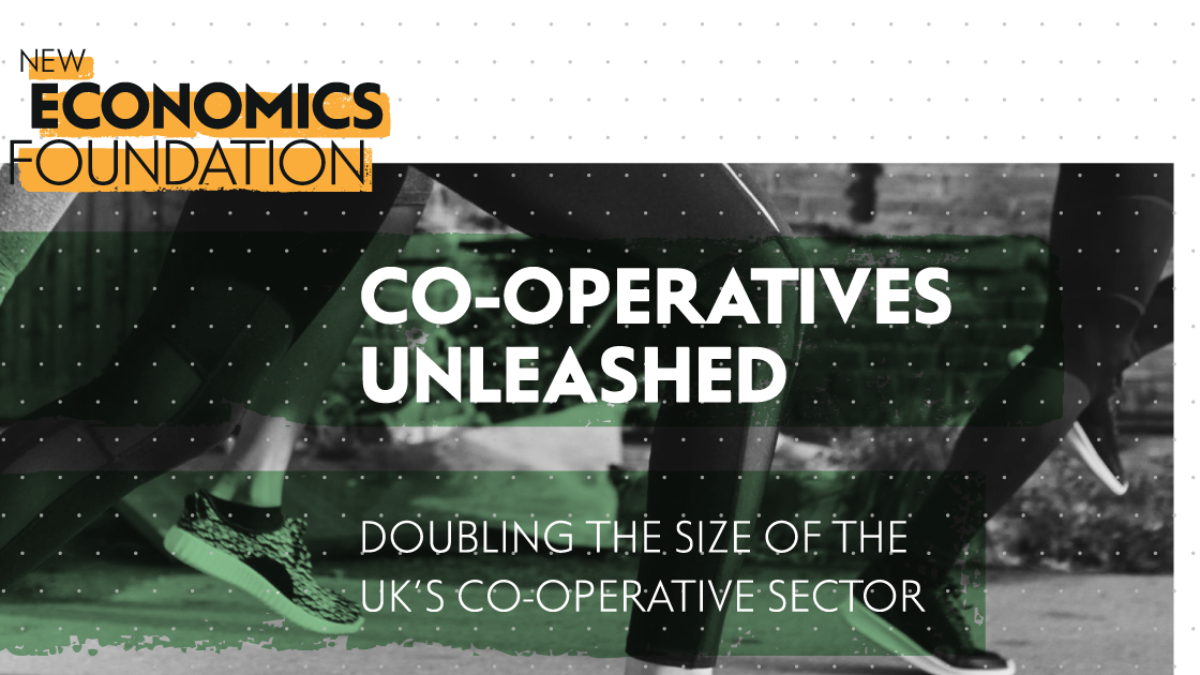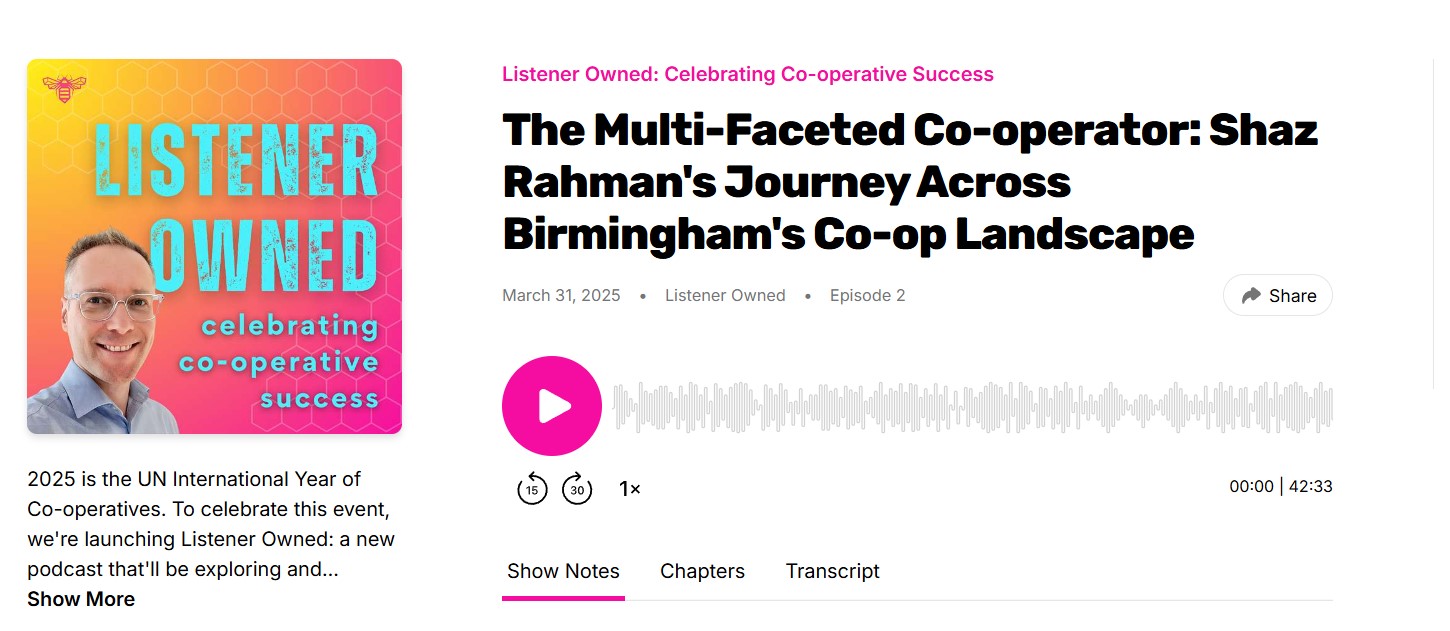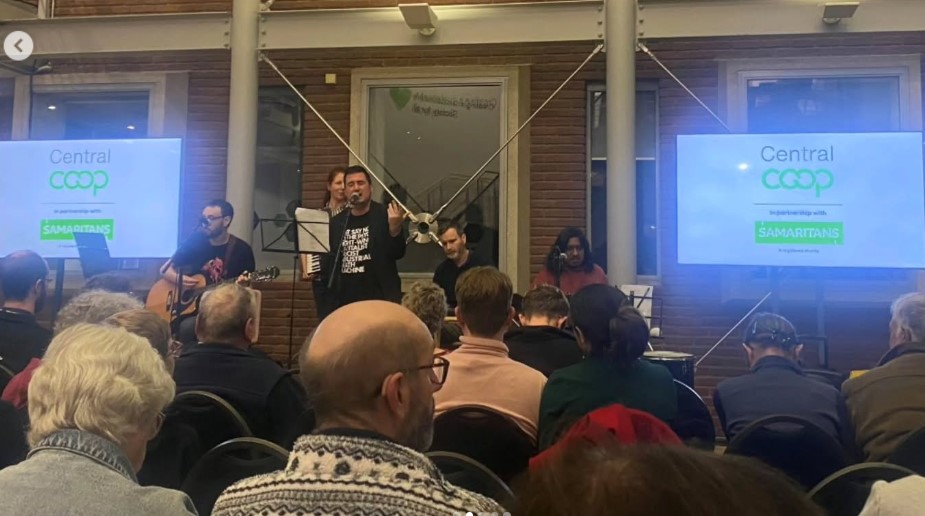Back in December, I appeared on the Not Enough Champagne Podcast to talk about Co-operatives. We talked about my experiences of being members of many Co-ops and a policy report from the New Economics Foundation report, “Co-operatives Unleashed” about doubling the size of the Co-operative movement.
Below are some notes from the podcast. If the notes interest you, you can listen to the episode here.
- A way of structuring an organisation that the stakeholders have ownership over it. There are many types, Three types. examples include Birmingham Friends of the Earth. A Community Benefit Society. A Co-op designed for social good. The members vote in the Board of Directors.
Central England Co-op is a retail Co-op. Employees can be employees and so can customers.
- Workers Co-ops. Where the employees own the business in Birmingham, examples include the Birmingham Bike Foundry and Loaf
- They are very different, but they all have similar values. Co-ops have a higher buy in from their members. The community benefit stays within the communities that the members live in more than many multinational PLC juggernaut. The biggest Co-ops paid more tax than the likes of Amazon and Starbucks.
- When people work together, they can support each other. They empower workers. Support structures are placed in the Governance structures. Co-ops tend to be more resilient, have lower levels of staff turnover. Members can feedback and have more influence over the Co-op that they are members of.
- There is a lack of support from Government for Co-ops. It is not taught at schools. They come under the FCA rather than Companies House. Accessing capital for Co-ops can be harder than other organisational structures.
- Co-ops are in many forms that a lot of people won’t realise. For example, Credit Unions and Building Societies have Co-operative structures.
- New Economics Foundation report says to set up an investment bank to help fund Co-ops. Make it easier to run a Co-op, being audited by the FCA is much more stringent than other types of structure.
- Accelerate the switchover of businesses to become Co-operative.
The New Economics Foundation has the following policy recommendations.
A new legal framework for co‑operatives.
Finance that serves the co‑operative agenda.
Deepening co‑operative capabilities through a Co‑operative Development Agency.
Transforming business ownership.
Accelerating community wealth building initiatives.








